Fancy a cold one? A lot of us do – especially while watching the football. During the upcoming Euros tournament, consumption of beer in pubs and at home will increase and with National Beer Day falling on June 15th in the first weekend of the tournament, there’s an extra reason to raise a glass or bottle.
A nation of beer drinkers?
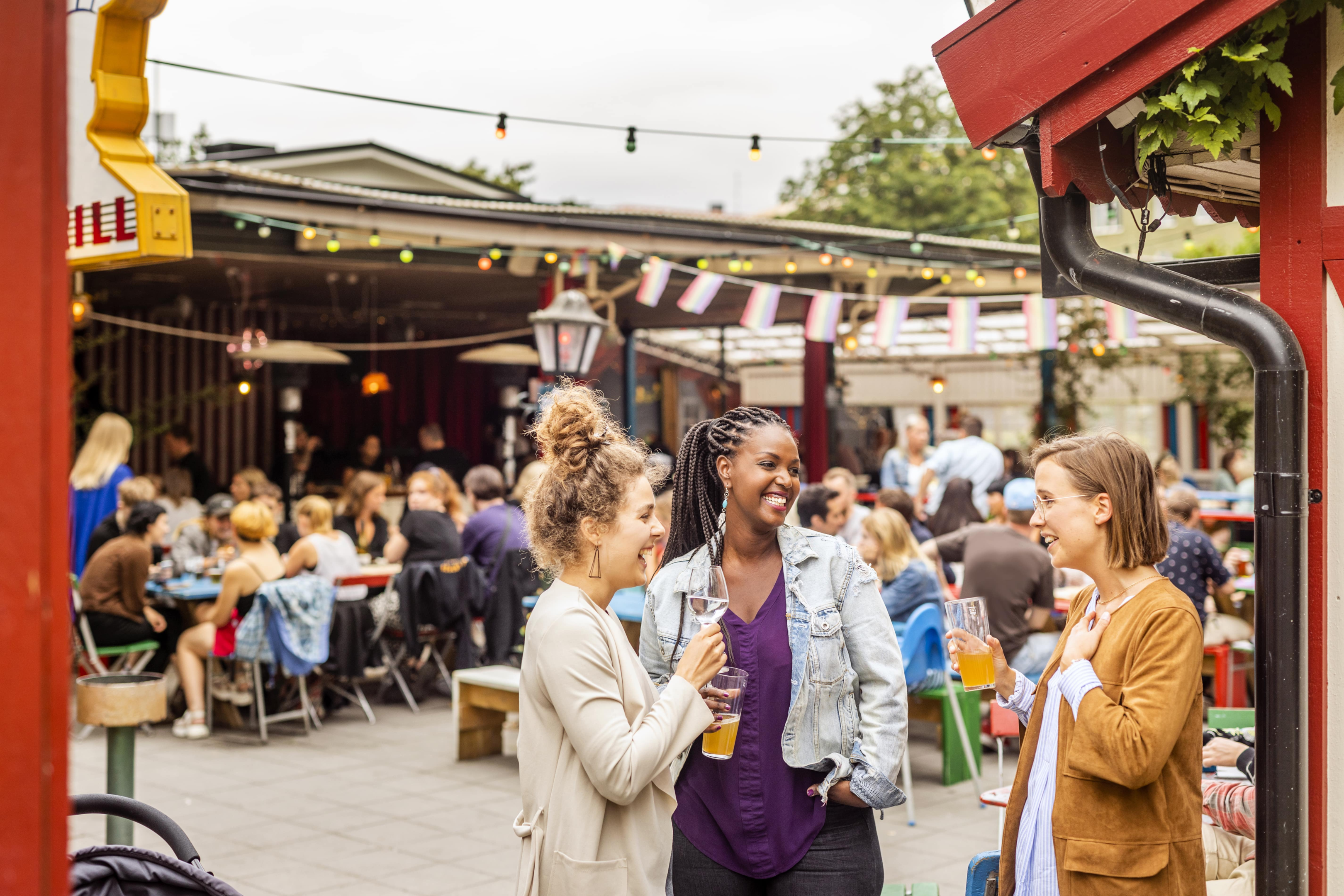
Traditional beer made from hops has been drunk in the UK since the 14th century at least, when it was imported from Amsterdam. Beers was first brewed in the UK in Colchester in 1412 with imported hops, and since hops were planted in Kent around 1520, we’ve not looked back!
Despite our reputation as beer drinking Brits, the UK is actually way down in the league of beer drunk per capita. That prize goes to Czechia, who drink twice the amount per head compared to the UK. Maybe something to do with it being cheaper than water in some areas of the country.
On National Beer Day no doubt pubs and bars will enjoy a boost in sales as people gather to watch the football. Lager is the now the most popular brew amongst UK adults with over 20% drinking it weekly while craft beers and bitter are enjoyed by around 10% of drinking adults.
So, we do enjoy drinking it. But how sustainable is that pint? You’d imagine it’s quite the eco-friendly option being made from UK grown ingredients and served in reusable glasses or bottles or cans that can easily be recycled. Let’s take a look.
Local Brew
That Spanish lager you like? Brewed in Yorkshire
The classic Mexican beer with lime? Fresh from South Wales.
Eight of the ten most popular beers in the UK are overseas brands brewed locally. Brewing in the country of consumption reduces the carbon impact that comes from shipping beers across the world. A couple of notable exceptions: Budvar is only ever brewed in the one location in the Czech Republic, and Tsing Tao Chinese beer is Chinese through and through.
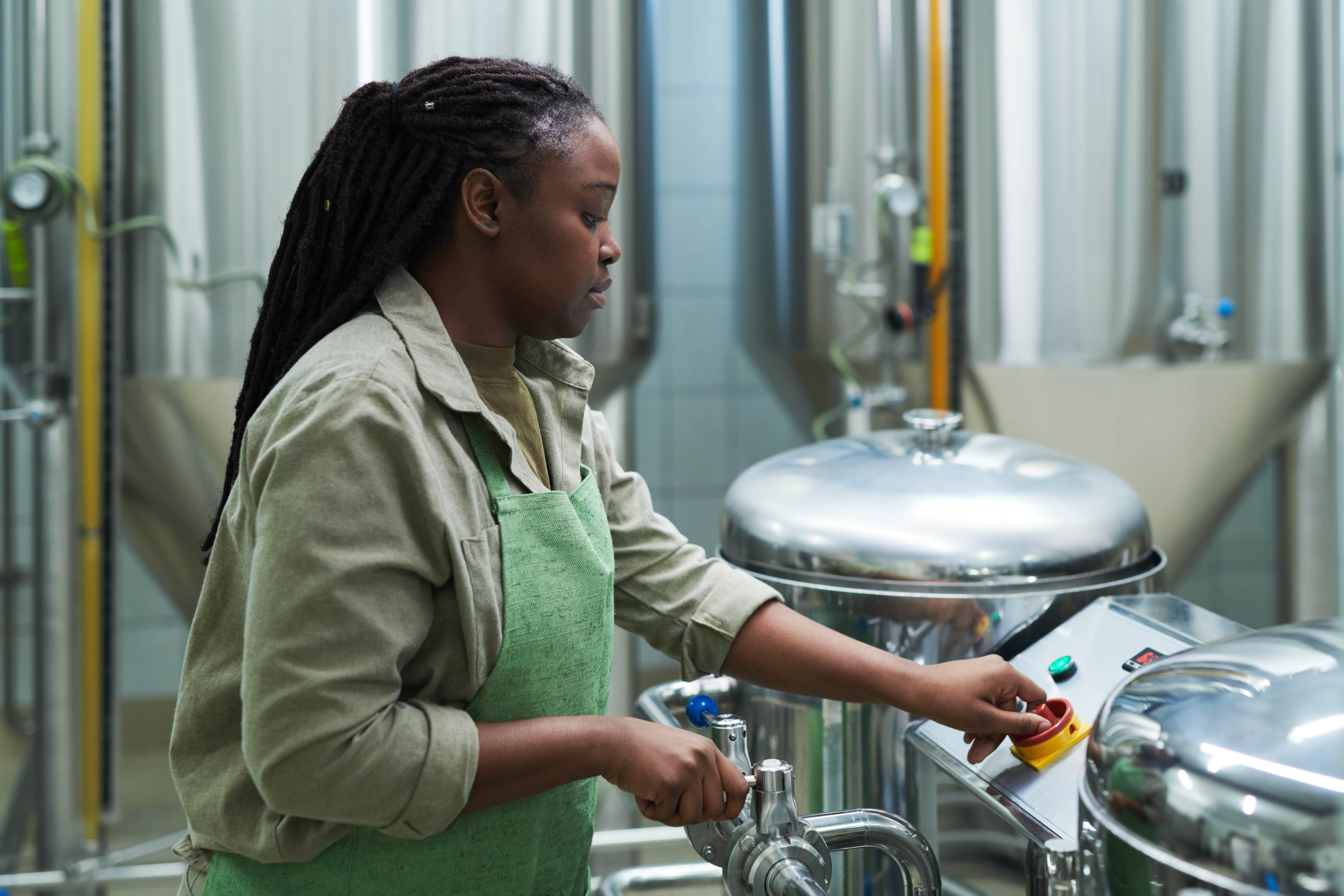
Many of the smaller ‘real ale’ brands originate in the UK and are brewed here.
UK Grown Ingredients in Beer Help Reduce the Food Miles
Green points can also be given for the ingredients in beer, the main ones being barley, hops, yeast and water. The majority of brewing barley is sourced in the UK – more boxes ticked there in food miles. Budweiser, the classic American beer (brewed in South Wales) uses 100% UK barley for its UK beer.
Hops are also UK grown, though brewers often look to other countries to get a variance of flavour for their brand. Reliance on hops and barley does mean climate variations can be a factor in the supply chain.
How is beer made?
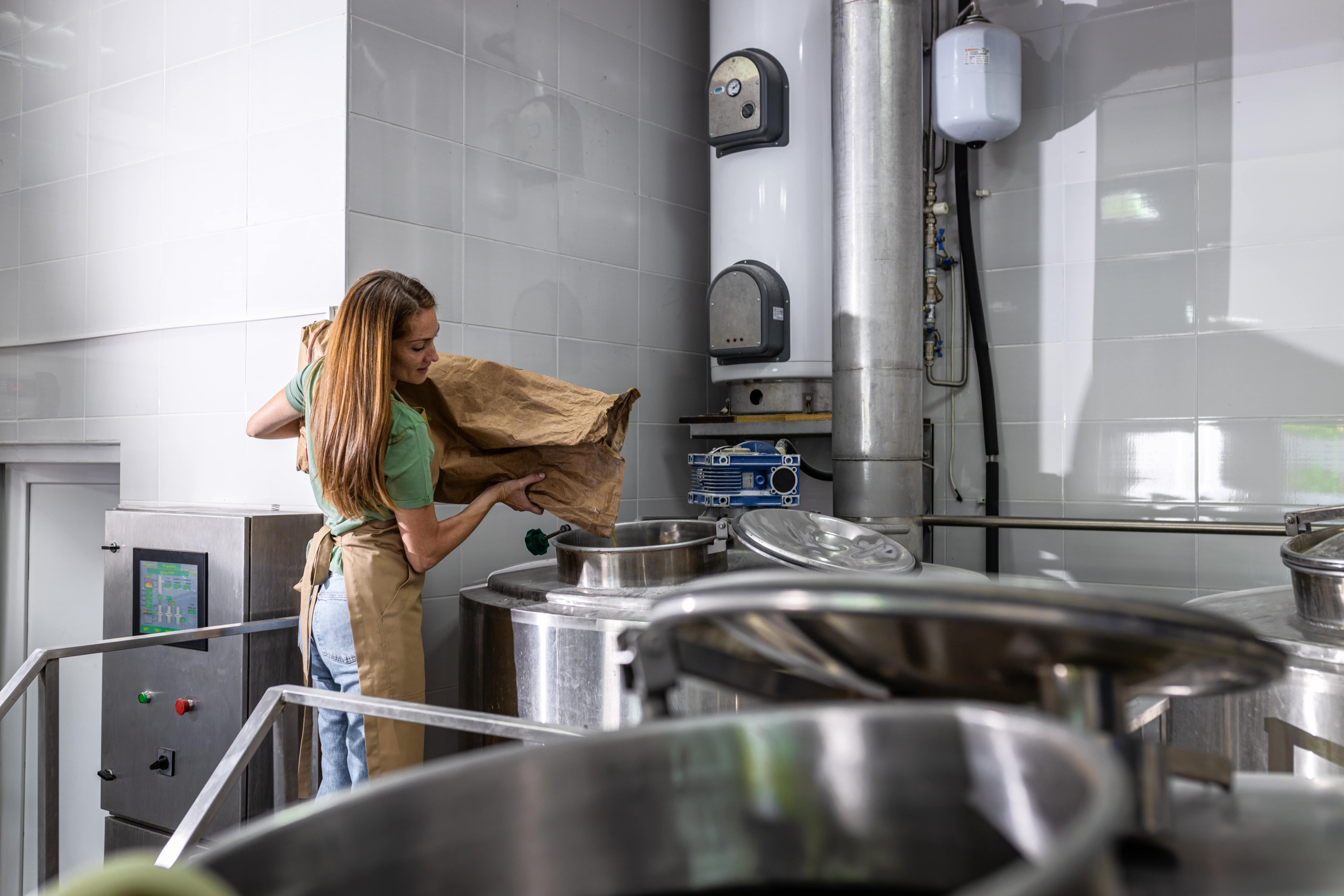
Brewing is a water intensive industry – from growing crops through to the manufacturing process. Many breweries large and small are looking to how they can become more sustainable, recycling water where possible and using green energy in production.
Some are also using innovative methods to improve sustainability. One of those brewing brands with sustainability at their core is Toast Brewing. They use surplus bread to brew their range of beers, reducing food waste in the process.
Our CEO Bruce recently sat down with Toast Brewing’s co-founder, Louisa Ziane to talk about their mission, the challenges faced by sustainable breweries as well how their production methods differ from a traditional brewing environment. Listen in to their conversation on our Climate Heroes podcast here. Perfect listening on National Beer Day, maybe with a cold can of their Rise Up lager.
Can you recycle glass bottles and cans?
Now to the part of the beer sustainability story where we have a real interest – the packaging.
Beer has been served in a glass bottle since the 16th century. A 220-year-old beer bottle was recovered from a shipwreck near Tasmania, still containing the beer! – the oldest preserved bottle ever found.
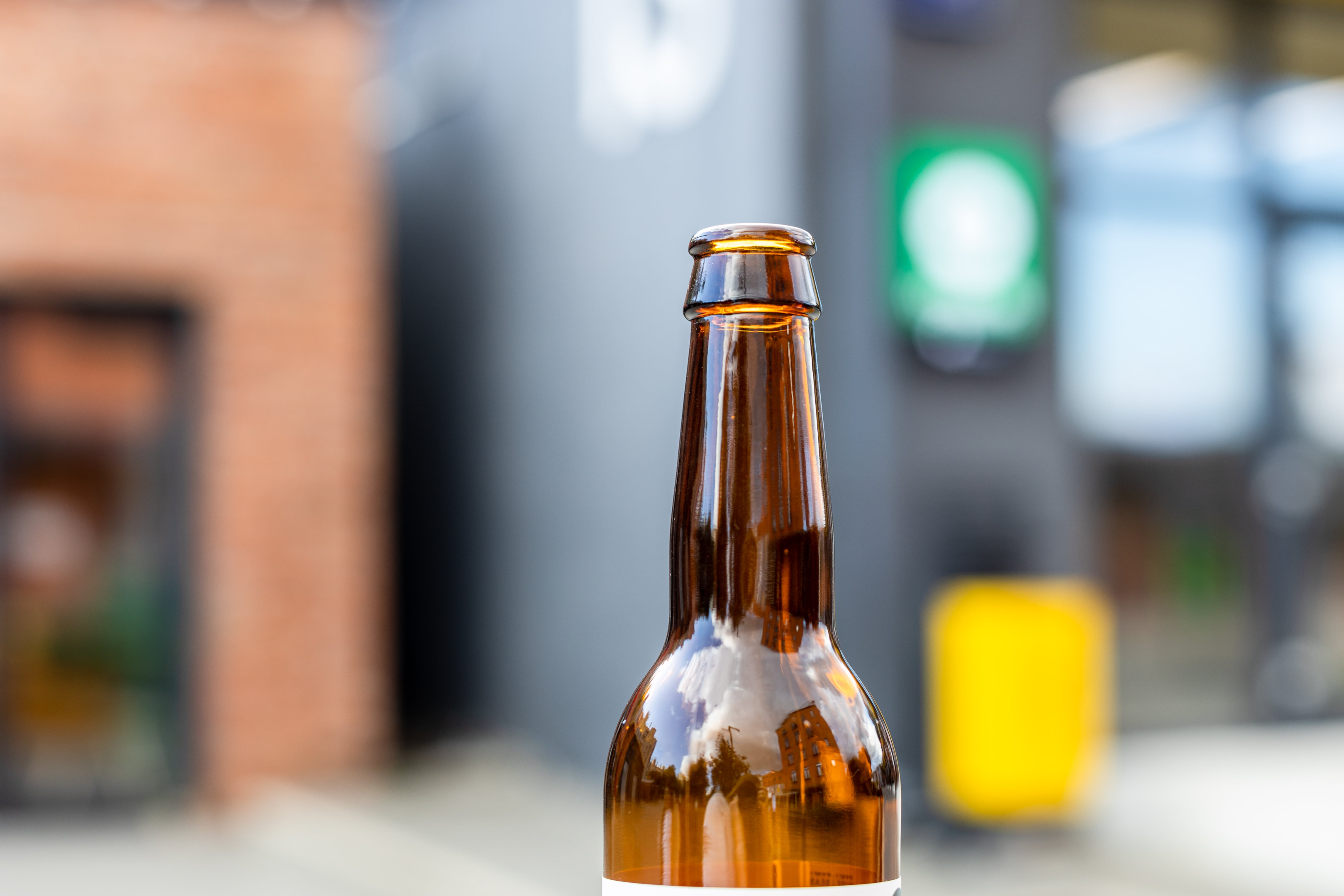
Canned beer first appeared in the UK 1935, pioneered by Felinfoel Brewery in Wales. With the amount of beer being drunk in the UK, that’s a lot of bottles and cans over the years. Historically most of that waste would end up in landfill but thankfully we’ve moved on to greener solutions, such as the bottle bank commonly found in supermarket car parks.
Hospitality Trade Waste Management – glass bottle recycling with First Mile
Bars, restaurants and pubs can use waste management firms like First Mile to improve their sustainability and send all their trade waste to be recycled. Those cans and glass bottles have well established recycling markets, which means nothing need end up in landfill.
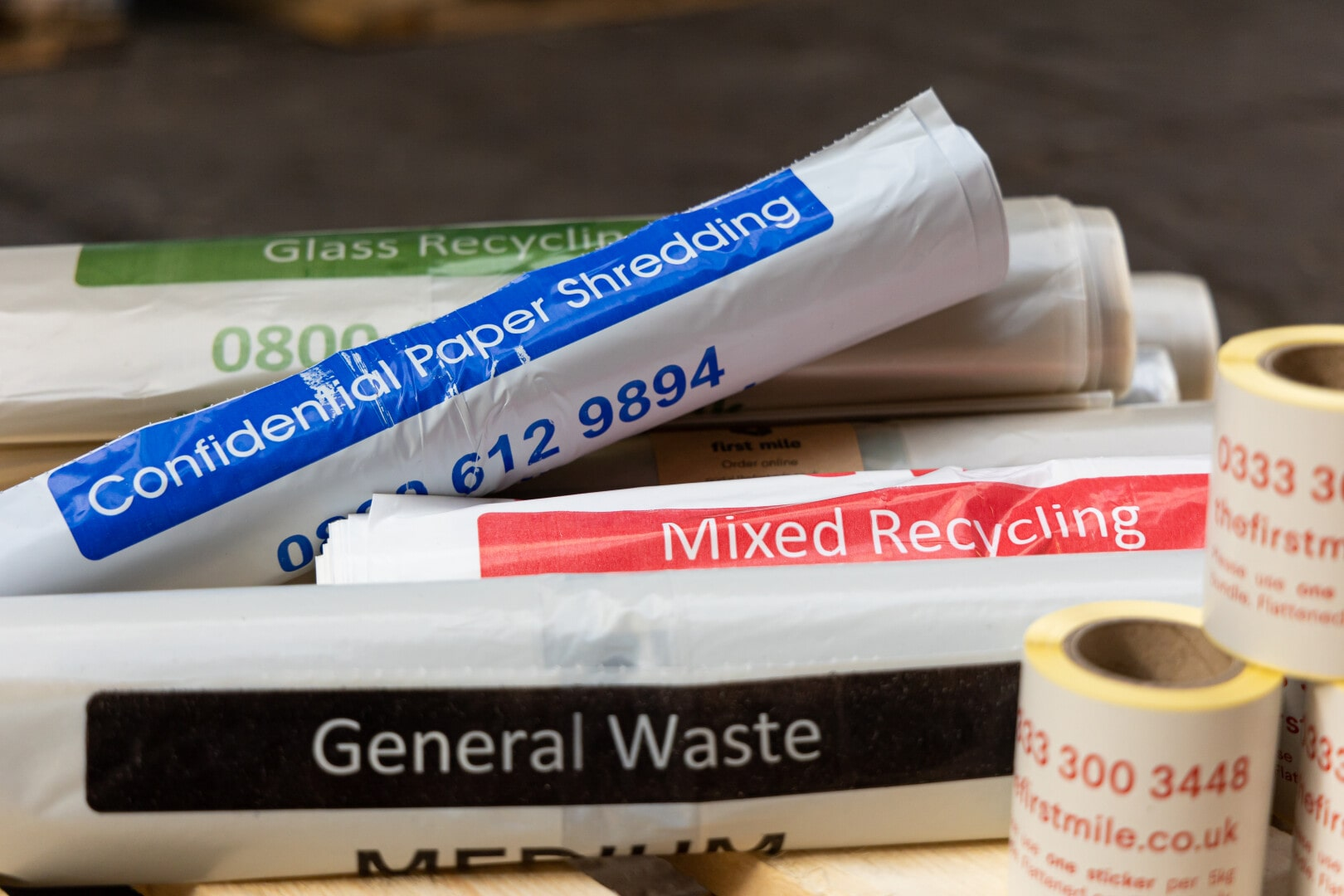
In the hospitality trade, draught beer is stored in disposable kegs which nowadays are more likely to be plastic rather than the traditional metal beer keg. The number of metal beer kegs in the UK has been in steady decline over the last decade with plastic kegs now the most commonly type of keg in the drinks industry. The kegs are used for wine and other drinks as well as beer.
Whilst plastic might be seen as less sustainable option than metal, the lightness of plastic compared to metal means it is more easily transported, reducing the carbon emissions associated with transportation.
How We Can Help the Hospitality Trade Reduce their Carbon Impact by recycling
Glass bottles and cans can all be recycled easily with a good waste management firm such as First Mile, we offer specialist steams for glass recycling and cans are recycled using our dry mixed recycling stream.
What about those plastic beer kegs?
They used to be a problem for plastic recycling firms due to their size but now they’re easily recycled and can be re-made into more plastic beer kegs. Opting for a closed-loop recycling option makes sense for hospitality venues looking to improve their sustainability.
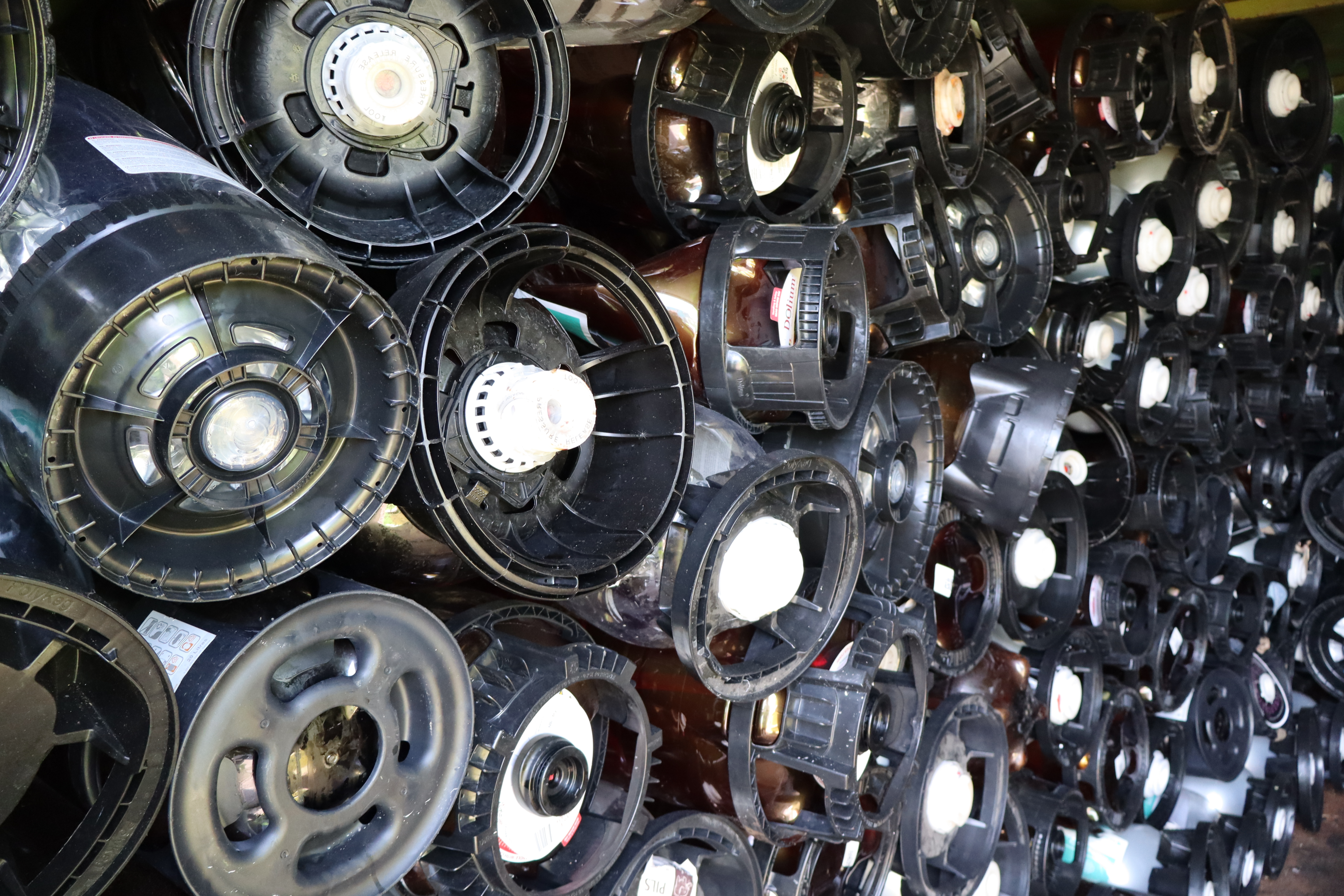
First Mile's Plastic Keg Recycling service offers an efficient and eco-friendly solution for recycling beer kegs. We work with pubs, breweries, bars and restaurants to make sure their beer kegs are recycled properly, reducing waste, and minimising carbon emissions.
Our full waste management service covers glass waste, cans, food waste and other recycling streams as well as plastic beer kegs – all bases covered for the hospitality trade. Our zero to landfill policy adds even more green points. Cheers to that!
How it works
We aim to make it as easy as possible for bars and restaurants to recycle – that’s our mission – and so we offer a full range of recycling options for hospitality trade waste.
· Our plastic kegs recycling service is very straightforward, with a simple sticker put on the empty keg, ready to be collected by our drivers.
· Glass waste is a single stream recycling collection, which means only glass bottles (of any colour) can go into that recycling collection bin.
· Beer cans are part of a mixed recycling stream which we sort back at one of our depots ready for sending on to the appropriate recycling partner.
· Food waste is collected and used for green energy, so nothing ends up in landfill.
Recycle glass with First Mile
We collect glass bottles and jars in our commercial waste glass recycling stream. In this process, waste glass packaging is collected by our team from kerbside sacks or wheelie bins, it's important to remove any leftover liquid.
What can go in our glass recycling stream?
-
glass bottles
-
glass jars
-
metal tops
What can't go in our glass recycling stream?
-
broken glass
-
light bulbs
-
metal objects
-
plastic bottle tops
-
drinking glasses
-
corks
-
mirrors
Glass recycled with First Mile is taken a specialist glass treatment plant, where it is separated using optical sorters. This process produces re-melt cullet used to create new bottles and jars.
Glass is one of the most efficient forms of recycling, you can recycle it back into it's original material indefinitely!
Get started with Plastic Beer Keg Collection & Recycling
Get in touch to discuss your pub, bar, or restaurant's beer keg and other recycling needs. Our dedicated team will guide you through the process and answer any questions you may have.
Set up a collection:
Once you've set up an account with First Mile, you can schedule regular keg and/or bin collections in our Customer Portal. This ensures that your empty beer kegs are promptly collected for recycling, preventing them from ending up in landfills.
Separate and Prepare Kegs:
Before collection day, it's important to properly separate the kegs from other waste. Rinse them to remove any remaining beer, as this improves the recycling process.
Bin Collection and Recycling:
On the scheduled collection day, our team will pick up from your location. The collected beer kegs will be transported to our specialised recycling facility in North London.
Sustainable Beer Production:
The recycled beer kegs are processed and transformed into new kegs, contributing to the circular economy in the beer industry. By recycling beer kegs, you're supporting sustainable beer production.
National Beer Day presents an opportunity for pubs, bars, and restaurants to embrace sustainable brewing and promote eco-friendly practices.
By partnering with First Mile's Key Keg Recycling service, members of the hospitality industry and brewers can ensure responsible beer keg disposal and really raise the bar of their sustainability efforts.
Click here to Contact Us today and get a tailored quote in minutes.


